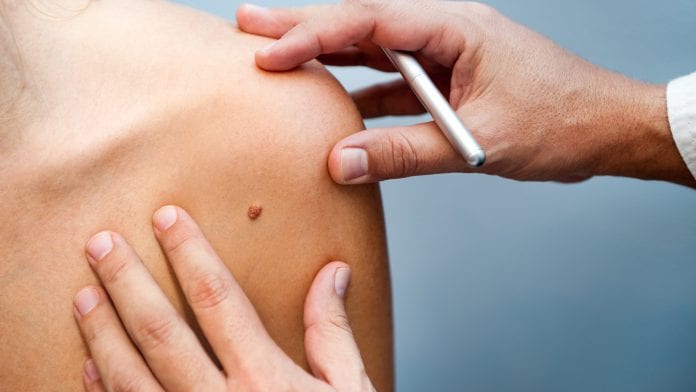
A new smartphone app – SkinVision – has been shown in a new study to detect more than 90% of skin cancer cases.
An international group of researchers working with Erasmus University Medical Center (Erasmus MC) in the Netherlands determined that SkinVision – the first CE-marked skin cancer application based on extensive clinical trials – has a sensitivity of 95.1% in detecting the most common forms of skin cancer .
Currently there are between two and three million non-melanoma skin cancers and 132,000 melanoma skin cancers occurring each year globally.
Smart apps save lives
SkinVision empowers individuals to take their skin health into their own hands by transforming their smartphone into a medical device for skin cancer risk assessment. The app has so far assisted in the finding of more than 35,000 skin cancer cases globally and managed to direct those people to a healthcare professional for further examination.
The service has the potential to triage those in need of treatment and could help to decrease both the average cost of treatment and the number of unnecessary doctor visits. The company has built up a customer portfolio of 1,200,000 users globally and a database of 3.5 million pictures of suspicious and benign skin spots.
Tiago M. C. D. Marques, postdoctoral researcher at Erasmus MC, and one of the study authors, said: “The field of mHealth apps for the risk assessment of skin cancer is undergoing rapid evolution. It is clear from this and other recent studies based on clinical images that the application of machine learning in large image databases leads to a high sensitivity to distinguish between malignant and benign skin cancer cases.”
The study
To evaluate the sensitivity of the algorithm, researchers used 285 histopathologically validated skin cancer cases from two previously published clinical studies and the smartphone application user database. The specificity was computed on a separate set from the user base, which contained 6,000 clinically-validated cases.
Andreea Udrea, a Ph.D. researcher at SkinVision, associate professor at University Politehnica of Bucharest and the lead author of the study, said: “Providing the layperson with a highly sensitive, robust and easy-to-use method to check lesions for skin cancer cases has been the SkinVision research team’s goal for the past seven years.
“I’m confident to say that SkinVision users benefit from the latest technological advancements that have been incorporated in a rigorous and clinically tested mHealth app.”
Erasmus MC is currently preparing a prospective study for further clinical validation, which will be performed at the Outpatient Dermatology Department during the coming months.







